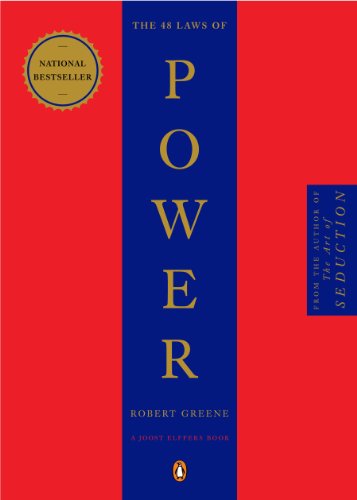

This article is an excerpt from the Shortform summary of "The 48 Laws of Power" by Robert Greene. Shortform has the world's best summaries of books you should be reading.
Like this article? Sign up for a free trial here .
Overview of Law #12: Use Selective Honesty and Generosity to Disarm Your Victim
You can use selective honesty and generosity to disarm your victim and distract others from your schemes. It works because even the most suspicious people respond emotionally, like a child, to acts of kindness.
Principles of Law 12
Deception and distraction go hand in hand. Distracting people gives you time to set up your trap or scheme to deceive them without its being noticed. This is how you use selective honesty and generosity to disarm your victim.
According to Law 12 of the 48 Laws of Power, one of the most effective methods of distraction is to surprise them with honesty or generosity. This approach disarms people by allaying suspicions and bringing out their inner child — they respond with eager, childlike gratitude.
The Chinese called this practice “giving before you take” — the gift distracts your victim while you do the taking. The gift can be anything including a physical gift, an act of kindness, a favor, or a seemingly honest admission.
It can be used to create an immediate distraction from what you’re doing, or to soften someone up for future actions or requests.
For your first meeting with someone, start with selective honesty. If someone believes you’re honest from the outset, it takes a lot to dislodge that belief, which gives to time get your plans in place. You can turn this into a reputation for honesty with a series of small acts.
The con man Victor Lustig used selective honesty and generosity to ingratiated himself with gangster Al Capone. Capone, who was accustomed to dealing with dishonest people, was caught off guard by Lustig’s unexpected honesty, which softened Capone up for Lustig’s real swindle. (More below.)
Another sub-law of Law 12 of the 48 Laws of Power is to use generosity. Generosity is another effective tool of distraction. No one, including even the most suspicious or cynical people (remember the Trojan horse?), can resist a gift.
Gifts — whether physical gifts or calculated acts of kindness — win hearts. They play on people’s emotions, turning even a hardened gangster like Capone into a grateful child. Just make sure you’re projecting a convincing sincerity. If people see through it, you’ll lose their trust forever.
Putting Law 12 to Work
Here’s an example of how to apply Law 12 of the 48 Laws of Power. Not many people would have tried to swindle Al Capone. But the notorious con man Victor Lustig succeeded because he understood human nature, and knew that even a gangster has human emotions.
Since Capone operated in an environment of distrust and scheming, Lustig made a show of committing a seemingly honest act, in order to distract him.
He requested $50,000 from Capone, promising to double it in sixty days. Lustig put the money in a safe-deposit box and did nothing with it. He later returned the original amount in full, with profuse apologies to Capone for failing to increase it. Capone was impressed with Lustig’s honesty in returning the money, and immediately gave $5,000 back to him as a reward (which is what Lustig wanted in the first place).
Al Capone, like everyone else, was susceptible to an unexpected act of goodwill. While trying to con an Al Capone might not be advisable for the inexperienced, the incident shows the power of using selective honesty and generosity to disarm your victim.
Exceptions to Law 12
Are there exceptions to Law 12 of the 48 Laws of Power? Times when you shouldn’t use selective honesty and generosity to disarm your victim? Fake generosity or honesty won’t fool anyone when you already have a reputation for deceit. In this case, admit to what you are: a scoundrel. Embrace your reputation for dishonesty.
For example, Talleyrand, who was a well-known deceiver, made a point of telling stories and making random comments that everyone knew were lies. Lying blatantly, as opposed to subtly, confused people enough to obscure what he was really up to.
The con artist Victor Lustig was about to sell the Eiffel Tower to an industrialist. Lustig had convinced the man that he represented the French government that was auctioning it off for scrap metal. A last-minute doubt stopped the industrialist from handing over his money. Lustig sensed this, and to put the man at ease, he flaunted his dishonesty by asking for a bribe. By acting dishonest (as many government officials were known to be), Lustig appeared genuine and his scheme succeeded. In his career, he actually “sold” the Eiffel Tower twice.
In a strange way, you can honestly use your dishonesty as a cover for your schemes. In general, follow Law 12: Use Selective Honesty and Generosity to Disarm your Victim.
———End of Preview———

Like what you just read? Read the rest of the world's best summary of "The 48 Laws of Power" at Shortform . Learn the book's critical concepts in 20 minutes or less .
Here's what you'll find in our full The 48 Laws of Power summary :
- Why you should never outshine your boss
- How to appear like a friend but behave like a spy
- The 6 rules you absolutely must not violate, if you want to be successful






